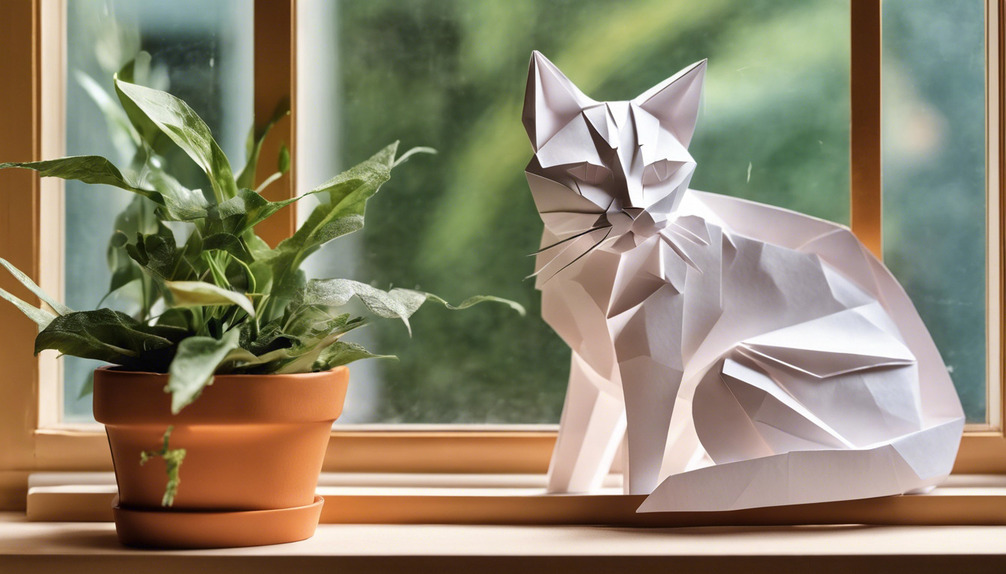If you’re one of the millions of cat owners in the United States, you may be surprised to learn that kidney disease is a common ailment in aging felines, affecting around 30% of cats over the age of 15.
When your cat gets older, it’s very important to take care of their kidney health. You want to make sure they have a good life. But how do you do this? How can you help your senior cat’s kidneys work well?
There are four key tips that can make a significant difference in your cat’s well-being, and we’ll explore them together.
Key Takeaways
- Increased water consumption is crucial for supporting kidney function and overall well-being in aging cats.
- Providing water fountains or dripping faucets can help entice cats to drink more.
- Incorporating canned food with higher moisture content into their diet can help increase water intake.
- Regular monitoring of water intake and hydration, as well as seeking veterinary guidance, is important for maintaining kidney health in senior cats.
Importance of Hydration for Senior Cats
Encouraging increased water consumption is crucial for maintaining the hydration levels of your senior cat, supporting their kidney function and overall well-being.
As your cat ages, their kidneys may become less efficient at maintaining fluid balance, making it essential for you to prioritize their hydration.
Proper water intake is crucial for senior cats to reduce the risk of kidney disease (CKD) and to support their renal health.
To ensure your senior cat stays adequately hydrated, consider providing water fountains or allowing a faucet to drip, as the sound and movement of water can entice them to drink more.
Incorporating canned food with higher moisture content into their diet can aid in maintaining their hydration levels.
Monitoring your cat’s water intake is vital, as it directly impacts their kidney health.
Dietary Tips for Kidney Health in Aging Felines
Considering a prescription diet that restricts protein and phosphorus can be beneficial for supporting the kidney health of your aging cat. This can help manage chronic kidney disease (CKD) and slow the progression of kidney failure.
To support your cat’s kidney health, you can try warming their food and hand feeding, or mixing tuna juice, water, gravy, or low-sodium chicken broth to coax eating and increase water consumption.
The use of appetite stimulants, anti-nausea medications, supplements like fish oil and calcium carbonate, antibiotics, and potassium supplements can also aid in managing CKD in aging felines.
It’s essential to understand that early detection and intervention are crucial in supporting cats with CKD. By incorporating these dietary tips and closely monitoring your cat’s health, you can provide the best care possible for your cat.
As cat owners, it’s understandable that managing renal failure in aging felines can be challenging, but with the right support and guidance, you can make a significant difference in your cat’s quality of life.
Monitoring Senior Cat’s Water Intake
It’s important to monitor your senior cat’s water consumption closely because as they get older, their kidney function might decrease, making proper hydration crucial. Keep an eye on how much water your cat drinks each day to quickly spot any hydration problems. Watch out for any changes in their drinking habits, like drinking more or less than usual, as this could signal kidney problems that need to be looked into.
To help you monitor your senior cat’s water intake effectively, consider the following list:
- Observe any changes in water consumption
- Ensure fresh water is always available
- Note any signs of increased thirst
- Consult with a veterinarian if concerned
Ensuring your senior cat has access to fresh water at all times is crucial, and monitoring their water bowl can help you track their intake. Consulting with your veterinarian is also important, as they can provide guidance on monitoring and managing hydration, which is vital for kidney support and early diagnosis of any potential renal failure. Increasing water intake can be beneficial for a cat with kidney issues, and paying attention to the protein content of their diet is also crucial.
Lifestyle Adjustments for Senior Cats’ Kidney Care
Making adjustments to your senior cat’s lifestyle can significantly support their kidney care as they age. As your cat grows older, it’s essential to make thoughtful lifestyle adjustments to ensure their overall well-being when it comes to kidney health.
Here are some key lifestyle adjustments to consider for your senior cat’s kidney care:
- Dietary Modifications: Switching to a kidney-friendly diet can play a crucial role in supporting your senior cat’s kidney health. Opt for high-quality, low-protein canned food specifically formulated for cats with kidney issues. This type of diet helps reduce the workload on the kidneys and minimizes the risk of renal failure.
- Increased Moisture Content: Encouraging your senior cat to consume more water is vital for kidney care. Consider offering canned food, which has higher moisture content than dry kibble, to help keep your cat hydrated. Ensure that your cat has access to fresh water at all times to support their kidney function.
- Regular Monitoring: Keep a close eye on your senior cat’s overall health and behavior. Regular veterinary check-ups and monitoring for any signs of kidney problems, such as increased thirst or changes in urination habits, are crucial for early detection and management of CKD.
Frequently Asked Questions
How Can I Help My Older Cat With Kidney Disease?
You can help by providing a prescription diet, offering subcutaneous fluids, and coaxing them to eat and drink more. Don’t forget to monitor symptoms and seek personalized advice from a vet.
How Can I Strengthen My Cats Kidneys?
You can strengthen your cat’s kidneys by providing a balanced diet, monitoring water intake, and consulting with a vet for personalized advice. Consider prescription diets and regular exercise to support your aging cat’s kidney health.
What Is the Best Senior Cat Food for Kidney Disease?
You should consult a vet for the best senior cat food; prescription diets can be helpful. Ensure it contains essential nutrients and introduce it gradually. Monitor your cat’s adjustment period and seek professional advice.
What Not to Feed a Cat With Kidney Disease?
You should avoid high-protein, high-phosphorus, and high-sodium foods for a cat with kidney disease. Also, don’t give human foods like onions, garlic, chocolate, and grapes, as they can harm their kidneys.




